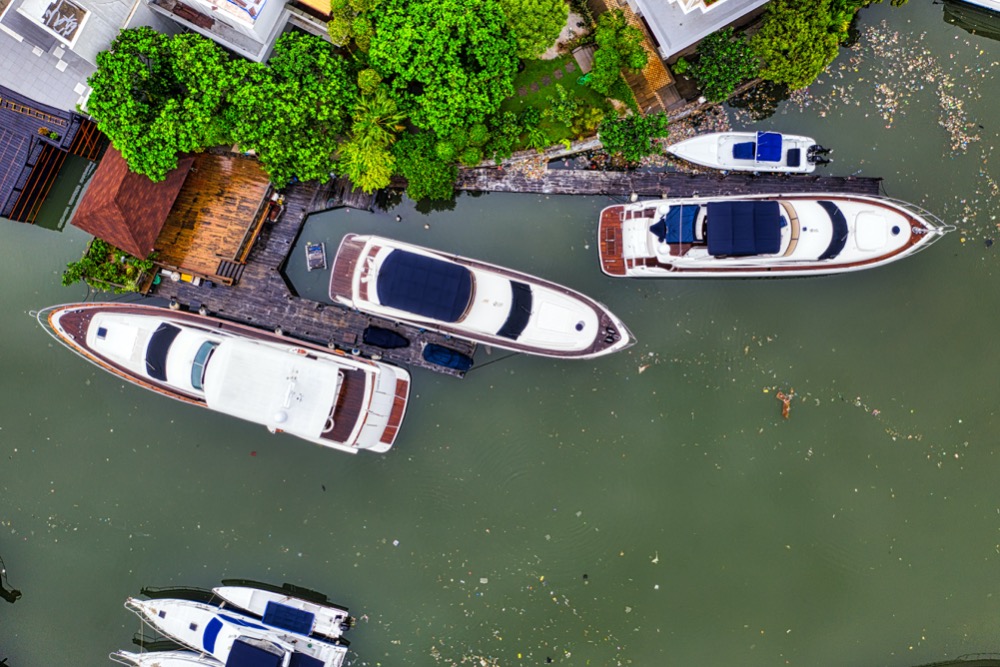It’s time for environmental issues to break out of the echo chamber
The industry can't afford to be overwhelmingly positive considering the current state of the environment…
There has been a lot of recent, well-publicised, progressive developments in the superyacht industry. The market is undeniably moving in a more sustainable direction; the only feasible concern is whether the speed of that transition is happening quick enough. Cutting out single use plastics, inviting marine biologists on board and introducing hydrogen-powered engines are some of the biggest initiatives being undertaken. But, are we focusing too much of our attention on the positive environmental and human impacts that our industry perpetuates?
The thought occurred to me while working on a refit in southern Europe. As a sand blaster went to work on the waterline of a very modern sail boat, aggregate began bellowing out from under the tent. I watched as the aggregate was swept up by the offshore wind and carried across the nearby Mediterranean Sea. With it being a weekend, hardly anyone was in the yard, and so for the entire day the grit was being blown into the water of a nearby beach full of tourists.
It poses the question: how often are the corners cut because of fundamental flaws in the way we operate as an industry? Why is this worker hammering out a job, unsupervised, over the weekend? The only conclusion I can reach for this particular scenario is that the strenuous deadlines often placed on enormous refit projects necessitated such action. Introducing more frequent refits, before small problems become big problems, is the kind of big change we need to ensure that careless mistakes don’t occur in an industry that prides itself on quality of service. But how can we initiate these big changes if we don’t talk about them?
While this is only one anecdote and a single instance cannot be used to signify systemic flaws, it does make you wonder how often these incidents go undocumented and unreported. I fear that not many people would be particularly interested in reading about it, even if it had been reported. Perhaps, the industry has a positive mindset, and there is something refreshing about a strong appetite to read about the latest innovative product, nifty new idea or forward-thinking collaboration, rather than the doom and gloom that has become the accepted norm for mainstream media channels. However, burying one’s head in the sand is seldom a precursor for progress.
I get the sense that the industry enjoys hiding behind the illusion of progress, feeding into the storm of press releases that do just about enough to let everyone know we’re on the right track. Surely, if we perceived the threats to our environment as a genuine danger, we wouldn’t be able to help that primal switch in our brain that craves bad news. As any social psychologist would tell you, it is engrained in our DNA to be aware of the dangers of our surroundings, that’s why the news is so depressing. So why is there so little negative news about the environmental impact of the superyacht industry?
By changing our media diet, we can create a larger platform for environmental experts to critique and guide the way for effective change. By allowing organisations with the best expertise to have a larger news space, with freedom to deliver the harsh realities, we can make sure we are listening to the right people.
My argument is not to say that those that work in the sector are environmentally irresponsible, nor am I using my platform to call-out industry leaders for how seriously they are tackling the topic. Instead, what I would like this article to achieve, is to make the reader think objectively about whether we hold ourselves accountable for the realities of our current situation. By all means people should be allowed to pat each-other on the back and give our associates COVID-friendly fist bumps, but with an awareness of the mountain we are climbing.
As the industry grows and new ideas develop, it is important to constantly remind oneself that the current state of the environment is more than alarming and we should constantly be striving for big changes, and big investments. One way to start making big changes is to start discussing big changes, and the media is partially responsible for initiating those discussions. As George Orwell once said, ‘Journalism is printing what someone else does not want printing, everything else is PR.’
NEW: Sign up for SuperyachtNewsweek!
Get the latest weekly news, in-depth reports, intelligence, and strategic insights, delivered directly from The Superyacht Group's editors and market analysts.
Stay at the forefront of the superyacht industry with SuperyachtNewsweek
Click here to become part of The Superyacht Group community, and join us in our mission to make this industry accessible to all, and prosperous for the long-term. We are offering access to the superyacht industry’s most comprehensive and longstanding archive of business-critical information, as well as a comprehensive, real-time superyacht fleet database, for just £10 per month, because we are One Industry with One Mission. Sign up here.
Related news
.jpg)
Pascoe launches SOLAS Limousine Range
Pascoe recently announced its fully-appointed guest limousine
Fleet
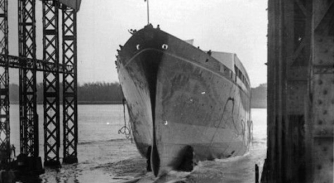
Royal Yacht to be offered for international tender?
Offering the project exclusively to UK businesses may be in breach of an agreement signed with the WTO in 2020
Business
.jpg)
New co-ownership platform exclusive to Sunseeker owners
We explore the differentiating factors and the long-term vision for the new Meros co-ownership platform
Business
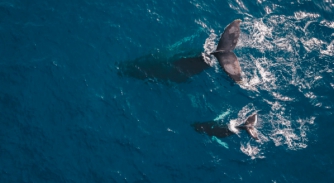
Water Revolution Foundation launches first endorsed marine conservation project
A superyacht community crowdfunding campaign to protect the oceans
Business
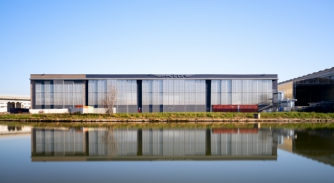
Falcon Yachts’ present and future
An interview with Falcon Yachts’ Valentina Antimi about the Italian shipyard’s present and future
Business
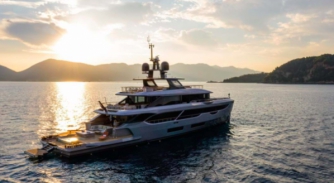
A lesson in transparency
An owner’s perspective on taking delivery during the COVID-19 pandemic
Owner
Related news
Pascoe launches SOLAS Limousine Range
5 years ago
Falcon Yachts’ present and future
5 years ago
A lesson in transparency
5 years ago
NEW: Sign up for
SuperyachtNewsweek!
Get the latest weekly news, in-depth reports, intelligence, and strategic insights, delivered directly from The Superyacht Group's editors and market analysts.
Stay at the forefront of the superyacht industry with SuperyachtNewsweek


